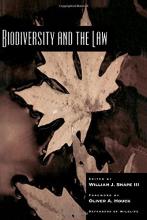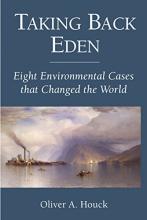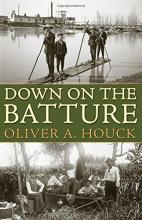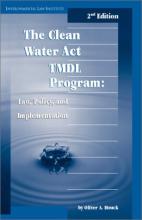Oliver Houck
Professor of Law
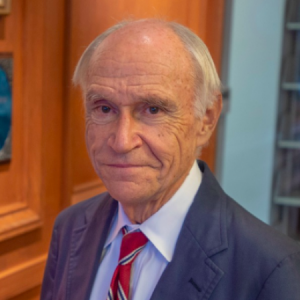
Biography
Oliver Houck’s specialties involve environmental, natural resources and criminal law. He is active in legal proceedings involving wildlife, wetland, coastal and pollution issues and publishes regularly on these and related topics.
He has published several books, including Taking Back Eden (on environmental lawsuits abroad), Down on the Batture (on the Lower Mississippi River), The Clean Water Act TMDL Program (pollution control), and most recently Downstream Toward Home (on rivers of North America). He also has written extensively for academic journals and general interest publications.
Houck served as a federal prosecutor in Washington, D.C., and as National Wildlife Federation general counsel and vice president before joining the Tulane law faculty in 1981. He has since served on the boards of Defenders of Wildlife, the Environmental Law Institute and the Environmental Defense Fund, an advisory board of the U.S. Army Corps of Engineers and two committees of the National Science Foundation. He has also founded several public interest organizations in Louisiana and at Tulane Law School and has consulted on the development of environmental law in Cuba and other Latin American countries.
Houck’s classes emphasize relationships between ecology and law, and he regularly takes students on field trips into coastal ecosystems, the Pearl and Atchafalaya swamps and other natural areas. He has received the law school’s Felix Frankfurter Distinguished Teacher Award was named a recipient of the Sumter Marks Award in 2000 and 2002 for his publications. He also has been honored with the New Orleans Press Club Award, the Tulane University Graduate Teaching Award and the 2005 Distinguished Achievement Award from the American Bar Association’s Environmental Section.
He has been recognized as Louisiana’s Conservationist of the Year, Gambit magazine’s New Orleanian of the Year and the New Orleans Young Leadership Council’s Role Model of the Year.
Education
Georgetown University
Harvard University
Accomplishments
Georgetown University Distinguished Environmental Law Alumnus Award
2019
Svetlana Kravchenko Award in Environmental Human Rights, University of Oregon
2018
Louisiana Bar Foundation, Distinguished Professor Award
2018
Fellow, American College of Environmental Lawyers
2016
Coastal Stewardship Lifetime Achievement, Coalition to Restore Coastal Louisiana
2015
Articles
Shintech: Environmental Justice at Ground Zero
2019
This is a history of environmental justice in the American South, and more particularly Louisiana, where low-income communities of color are surrounded by some of the largest petro-chemical complexes in the world. It rises from a proposal to site yet another giant facility, Shintech, within a population already exposed to nation-leading volumes of toxins. Going forward, it would bring the emerging concept of environmental justice to court. It would also bring public demonstrations, accusations of racism, investigations by national media (60 Minutes, Frontline), and vigorous attempts by the Governor and industry lobbies to curb student law clinics that were defending the rights of these same communities. When the Louisiana Supreme Court agreed to do so, a suit challenging its decision was filed in federal court, opening yet another front. These events were all related and, while Shintech wound to its own conclusion, they raised questions of equity, policy, and law that are, yet today, not at rest.
Noah’s Second Voyage: The Rights of Nature As Law
2017
One of the most enduring stories of the Bible, mirrored in the stories of other faiths as well, is that of Noah loading his Ark, saving the creatures of the known world. Many of those mentioned were of little use to Noah, including “everything that creeps on the ground.”
He certainly couldn’t eat them all. Some were so tiny he could not even have known they were there. Yet he saved them, every one. Which raises the question, why would God have done this? And why would the story—whether read as fable, gospel, or the history of a great Mesopotamian flood—have remained so deeply embedded some two millennia after the time of Christ?
These issues lay lurking in the rear guard of Western civilization, marginally relevant, until quite recently when they have come again to the fore. Noah is back, not just the notion of humans protecting nature, but the elusive reason why. And the answer emerging, one not even dared to be articulated at some points in the journey, is that these creatures, all creatures, not just the useful ones, not just handsome or sentient ones, including the habitats on which they depend, entire ecosystems, have their own right to board the Ark, as well, a protected right, to be.
To some, the proposition is ridiculous. To others it could save the planet.
Willow Springs: A Louisiana Civil Action
2016
You will not find Willow Springs by yourself, even on a map. Tucked away in the southwest corner of Louisiana, it has but one road along a sandy bluff leading down to Little River, past small houses tucked under the trees. It was named for groundwater that bubbled to the surface, and streams over sandy bottoms so clear you could see fish chasing bait to the line. (1) People lived simply here with garden crops out back and farm animals wandering by. No one was wealthy but they tended to live full lives.
Then the trucks appeared.
Media Appearances
Louisiana House to debate keeping industrial pollution reports secret
“Public health and environmental decisions need no secrecy,” said Oliver Houck, a Tulane University law professor. “To the contrary, they are very much assisted by full disclosure.”
The oil giant that was ‘forced to shrink to greatness’
“It’s odd because from a Louisiana point of view, the BP blowout and its subsequent funding has provided important moneys for coastal protection that otherwise would have been unavailable,” said Oliver Houck, who teaches environmental law at Tulane University.
Toxic Truth: New report raises 'Cancer Alley' concerns
“They used it as a shield, saying that the registry doesn't show any problems, although the risk rates are astronomical,” Houck said.
In the News
NPR: Weeks after Ida, Bayou communities outside New Orleans' levee system still devastated
Pipeline & Gas Journal: Louisiana politicians go to court blaming Big Oil for coastal woes
New York Times: Left to Louisiana’s Tides, a Village Fights for Time
Yahoo: Louisiana pols go to court blaming Big Oil for coastal ruin
The Guardian: Hotting up: how climate change could swallow Louisiana's Tabasco island
Biz New Orleans: Louisiana pols go to court blaming Big Oil for coastal ruin
Miami Herald: How climate change threatens to sink one of the world’s most popular hot sauces
NOLA.com: Could Trump climate roll-back help Louisiana fight sea-level rise?
Travel + Leisure: Load up on Tabasco Sauce Now, Because the Island It Comes From Is Sinking
